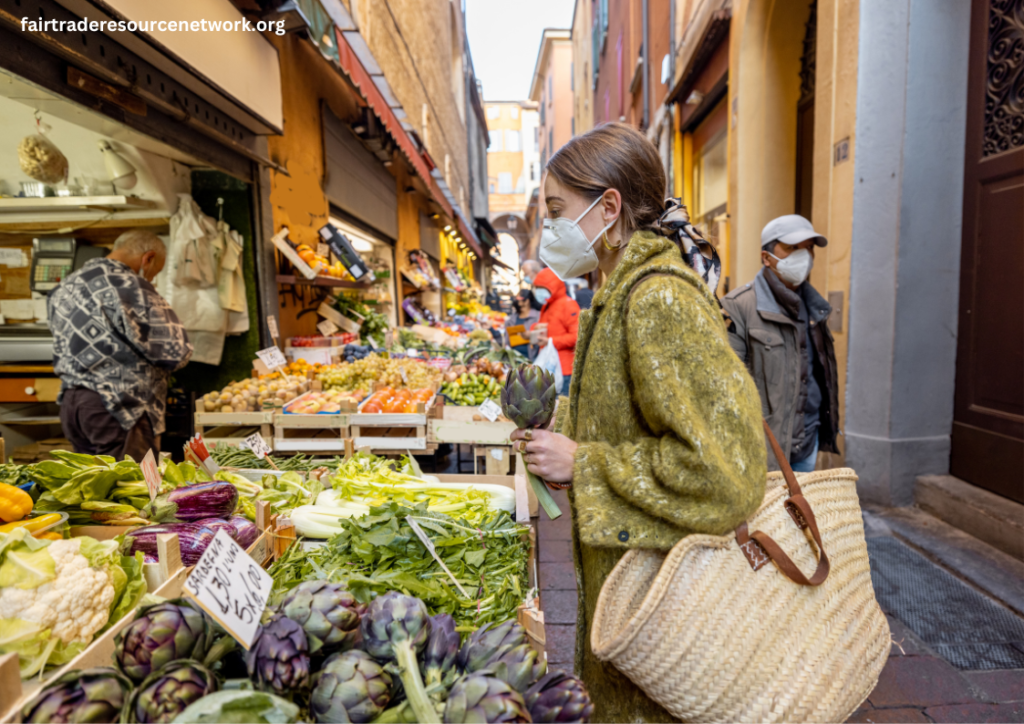
The COVID-19 pandemic brought the world to a standstill, causing economic turmoil on a global scale. As countries grapple with the daunting task of economic recovery, there is a growing recognition of the importance of building back stronger, fairer, and more sustainable. Fair trade, which is becoming more popular over the years, plays a big role in making this happen.
This article will explore the role of fair trade in post-pandemic economic recovery, shedding light on how it can promote economic resilience, alleviate poverty, and foster sustainability.
What is Fair Trade?
Before diving into the post-pandemic scenario, it is essential to understand what fair trade entails. Fair trade is a global movement dedicated to creating equitable and ethical trading relationships between producers in developing countries and consumers from developed countries. The fundamental principles of fair trade revolve around fair wages, ethical labor practices, and environmentally sustainable production.
Read more: Introduction to Fair Trade
Economic Resilience Through Fair Trade
The economic fallout of the pandemic has exposed the vulnerabilities of existing global supply chains, emphasizing the need for resilient and adaptive systems. Fair trade has a significant role to play in achieving such resilience. Here’s how:
- Diversification of Income Sources: Fair trade promotes diversification of income sources for small-scale farmers and producers. They become less reliant on a single crop or industry by allowing them to access global markets and receive fair prices for their products. This diversification acts as a safety net, reducing the risk of economic collapse during crises like the pandemic.
- Buffer Against Price Volatility: Fair trade arrangements often include price guarantees, protecting producers from sharp fluctuations. This stability provides a crucial buffer during economic shocks, enabling producers to maintain their livelihoods.
- Long-term Commitments: Fair trade fosters long-term relationships between producers and buyers. These commitments provide producers with a sense of stability, ensuring a more reliable source of income, even in times of uncertainty.
Poverty Alleviation and Social Impact
The pandemic exacerbated poverty in many parts of the world, and fair trade can serve as an effective tool to alleviate it. Here’s how:
- Fair Wages: Fair trade ensures that producers receive fair wages for their work, helping them escape poverty and improve their quality of life. This income stability is especially crucial in the wake of economic crises.
- Community Development: Fair trade often involves community development projects funded by the Fair Trade Premium, an additional sum paid to producers. These projects can include investments in education, healthcare, and infrastructure, benefiting not only individual producers but entire communities.
- Empowerment of Marginalized Groups: Fair trade focuses on inclusivity, ensuring that traditionally marginalized groups, such as women and indigenous communities, have equal opportunities to participate in economic activities. Fair trade contributes to social equity and poverty reduction by providing a level playing field.
Environmental Sustainability
The pandemic has raised environmental concerns, with some viewing the crisis as a reflection of humanity’s unsustainable practices. Fair trade embraces sustainability as one of its core principles, making it a vital component of post-pandemic recovery.
- Sustainable Farming Practices: Fair trade encourages eco-friendly farming techniques, such as organic farming, which minimize harmful chemicals and reduce the environmental impact of agricultural production.
- Biodiversity Conservation: Fair trade producers often work to protect and preserve local ecosystems, promoting biodiversity and preventing deforestation. This benefits the environment and ensures the long-term viability of their farming activities.
- Climate Resilience: Climate change poses a significant threat to global agriculture. Fair trade initiatives often provide resources and training to help producers adapt to changing climate conditions, enhancing their resilience.
Ethical Consumerism
The role of consumers must be considered in the fair trade movement. In a post-pandemic world, conscious consumer choices support a more equitable recovery.
- Supporting Fair Trade Brands: Consumers directly support producers in developing countries by choosing to purchase products from fair trade brands. This demand for ethically sourced products helps create stable markets for fair trade producers.
- Transparency and Accountability: Fair trade products are often accompanied by certification labels that guarantee ethical and environmental standards adherence. This transparency enables consumers to make informed choices and hold businesses accountable for their practices.
- Promoting Ethical Consumption Habits: The pandemic has sparked a greater interest in ethical consumption. Fair trade can further encourage this shift towards conscious consumerism, fostering a global culture of ethical purchasing.
Challenges and Opportunities
While fair trade holds immense promise for post-pandemic recovery, it also faces challenges that need to be addressed:
- Market Access: Expanding market access for fair trade products, particularly in a post-pandemic economic landscape, is a significant challenge. Advocating for fair trade at the policy level and increasing consumer awareness can help overcome this hurdle.
- Price Competition: Fair trade products may face price competition from lower-cost alternatives. Communicating the added value of fair trade, such as ethical and environmental benefits, is essential in addressing this challenge.
- Scaling Up: Expanding fair trade practices to more regions and industries is a priority. Investing in capacity building and infrastructure can enable fair trade to reach a wider audience and have a more significant impact.
